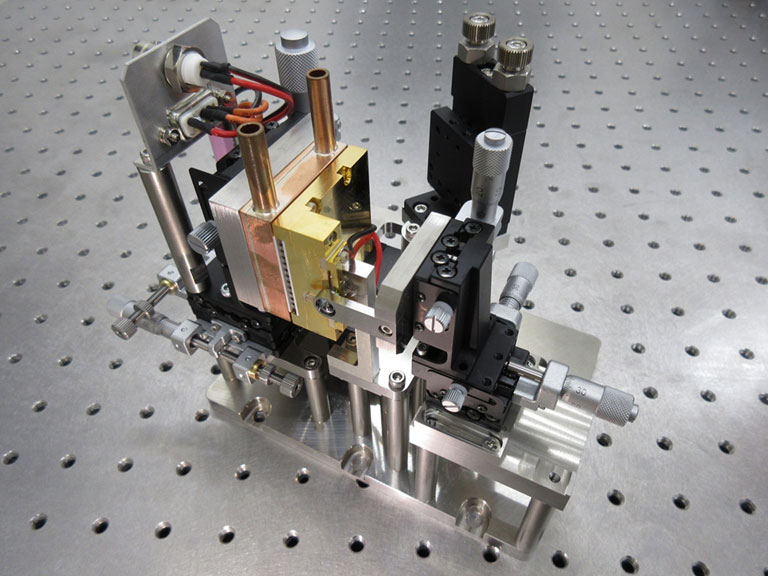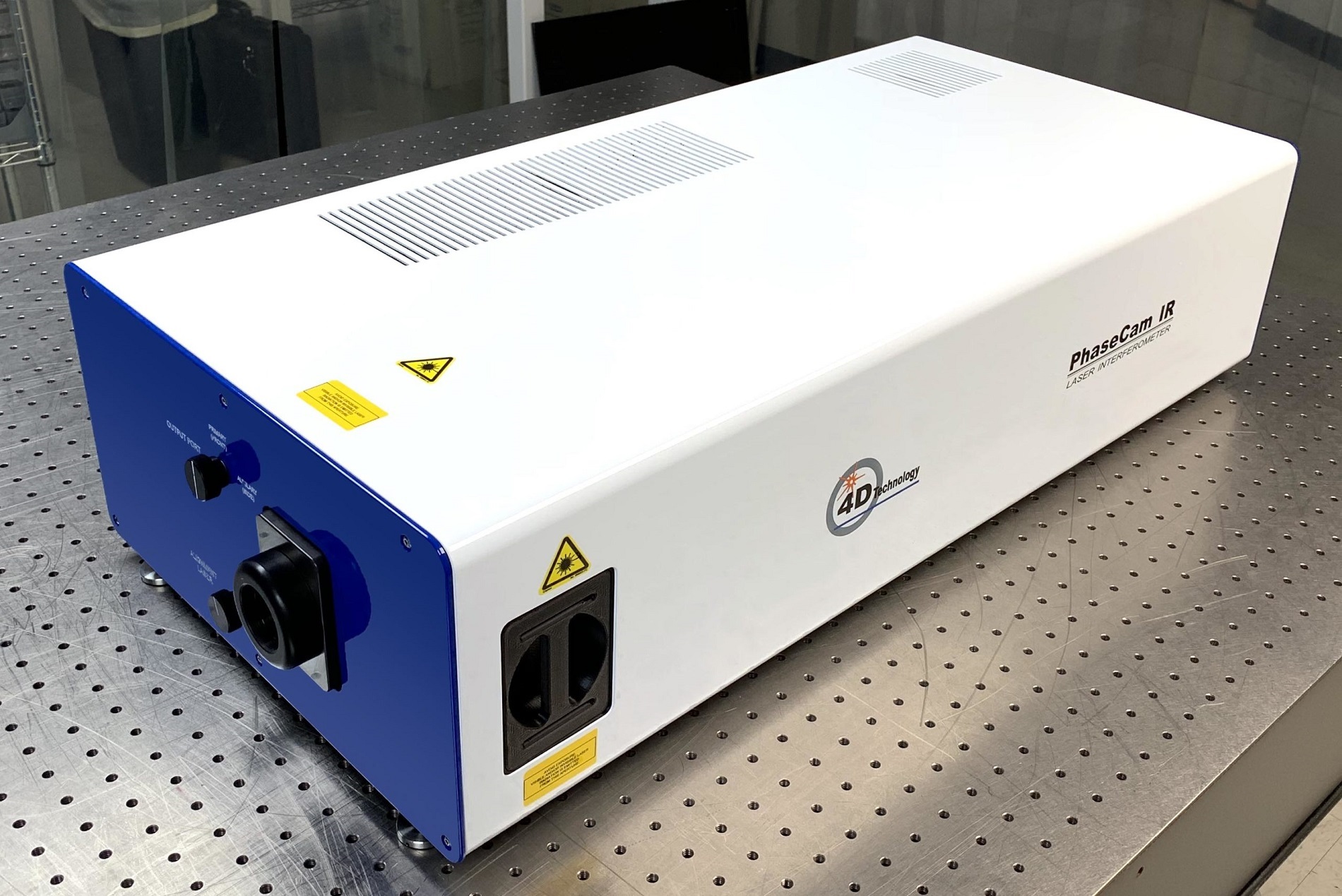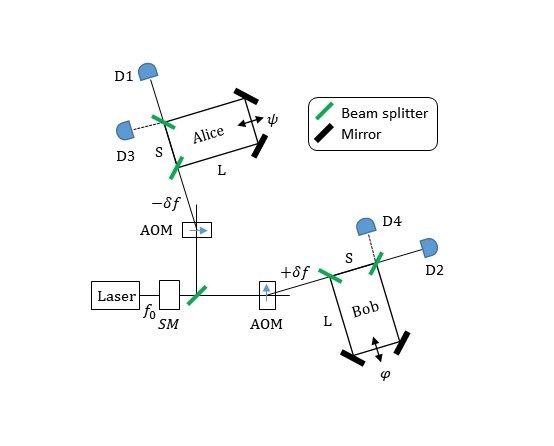Jülich, 15 December - Scientists from the Jülich Supercomputing Centre have set a new world record. Together with researchers from Wuhan University and the University of Groningen, they successfully simulated a quantum computer with 46 quantum bits – or qubits – for the first time. For their calculations, the scientists used the Jülich supercomputer JUQUEEN as well as the world’s fastest supercomputer Sunway TaihuLight at China’s National Supercomputing Center in Wuxi.
Software developers won’t have to start from scratch when the first practically applicable quantum computers become available in future. It is today possible to simulate the functioning of relatively large quantum computers on classical digital computers. The computational effort involved, however, is enormous. The amount of memory required doubles with each simulated quantum bit, or qubit.
"There are only a few supercomputers in the world that currently have such a large amount of memory, an adequate number of compute nodes, and sufficiently fast network connections to even simulate a system of 45 qubits - that was the former world record," explains Prof. Kristel Michielsen from the Jülich Supercomputing Centre (JSC). "And it’s just as important to get software up and running efficiently on the highly parallel architectures of state-of-the-art supercomputers."
It’s all down to the software
Many codes lose efficiency if calculated in parallel on a large number of compute nodes. However, the software which Michielsen has been developing together with her partners for over ten years scales almost perfectly. It shows hardly any loss in performance even if several million compute nodes are applied at the same time, as is the case with the Chinese supercomputer Sunway TaihuLight.
Michielsen has already set a number of benchmarks in the past. In 2010, she became the first person to simulate a quantum computer with 42 qubits on the former Jülich supercomputer JUGENE. She then surpassed that world record in 2012 with the simulation of a 43-qubit system on JUQUEEN, the successor to JUGENE. Most recently, Michielsen simulated a 45-qubit quantum system together with partners from universities in Groningen, Tokyo, and Wuhan, thus equalling a record set in spring 2017. For that more than 500,000 gigabytes, or 0.5 petabytes, of memory were needed.
The latest breakthrough, which involved the simulation of a quantum computer with 46 qubits, was achieved following an adjustment of the simulation code. The representation of a quantum state now only requires 2 bytes instead of 16 bytes, without the accuracy of the results being significantly reduced. Other users can benefit from this simplification, which equates to a reduction in required memory by a factor of eight. The new version of the simulation software now enables a quantum computer with 32 qubits to be simulated on a notebook with 16 gigabytes of memory.
Test environment for quantum algorithms
Scientists today use simulations of this kind to develop algorithms for future quantum computers and to test them on relatively large quantum computers. In the simplest case, the simulated quantum computers represent ideal quantum systems that behave exactly as predicted by the rules of quantum mechanics. Furthermore, basic error models are used to artificially produce disruptions that would be expected of a real quantum computer. The instability of qubits is one of the biggest problems associated with the development of practically applicable quantum computers, and one that researchers and developers are today attempting to rectify through simulations under ideal conditions.
Further information:
Quantum Information Processing at the Jülich Supercomputing Centre (JSC)















